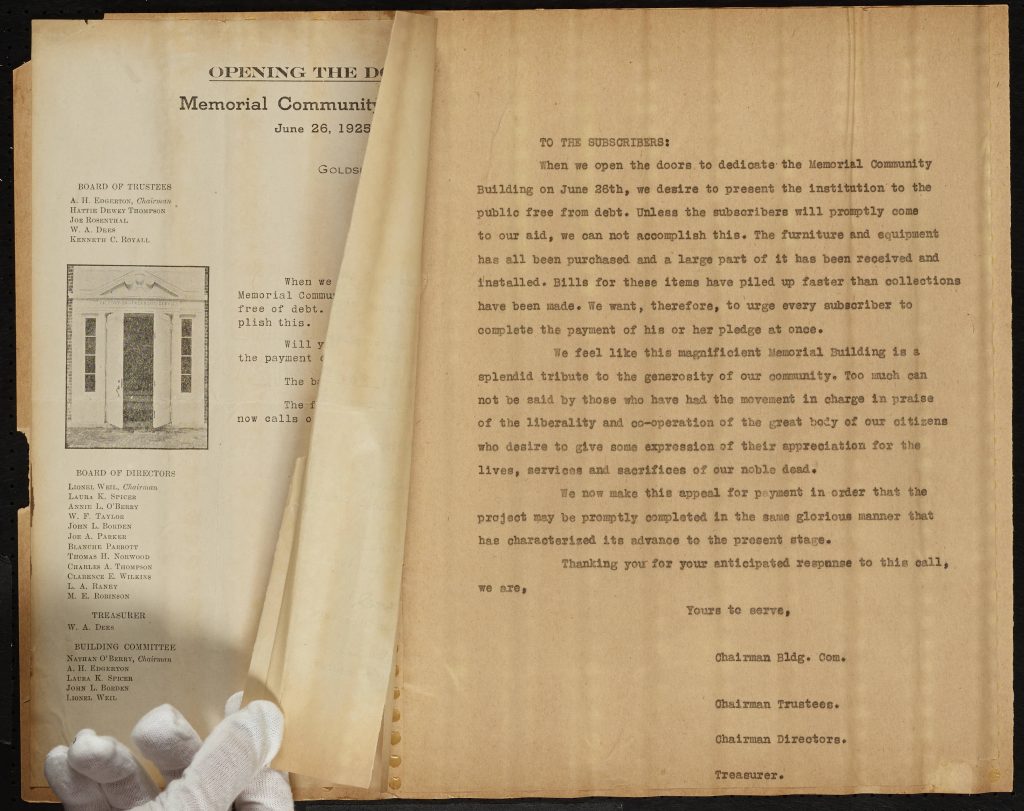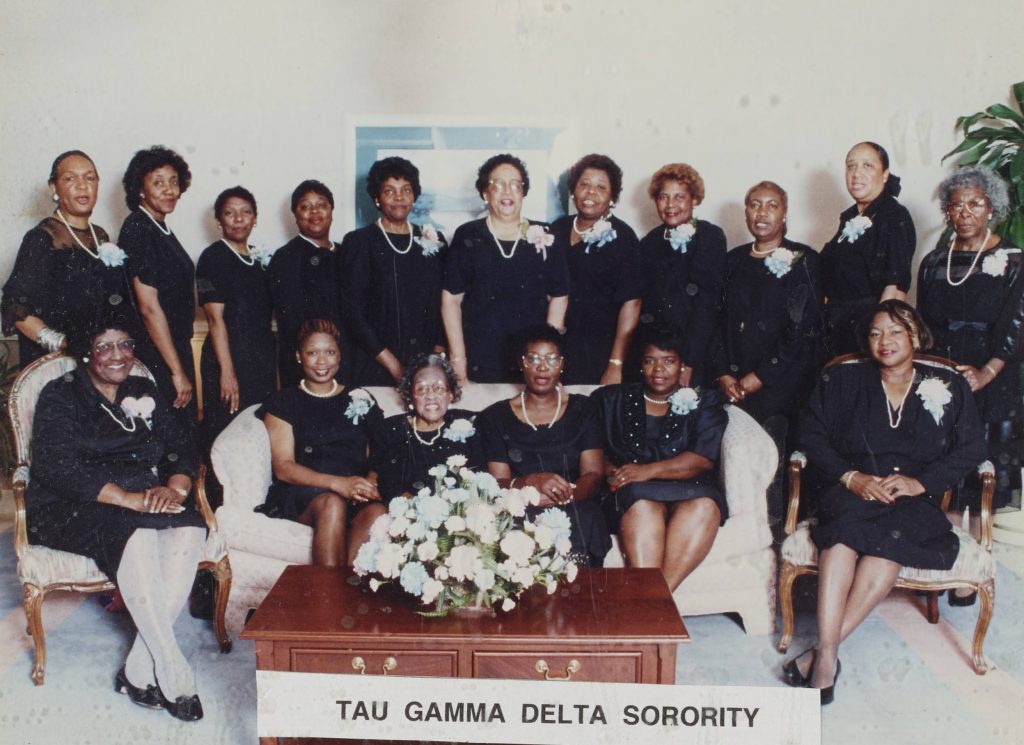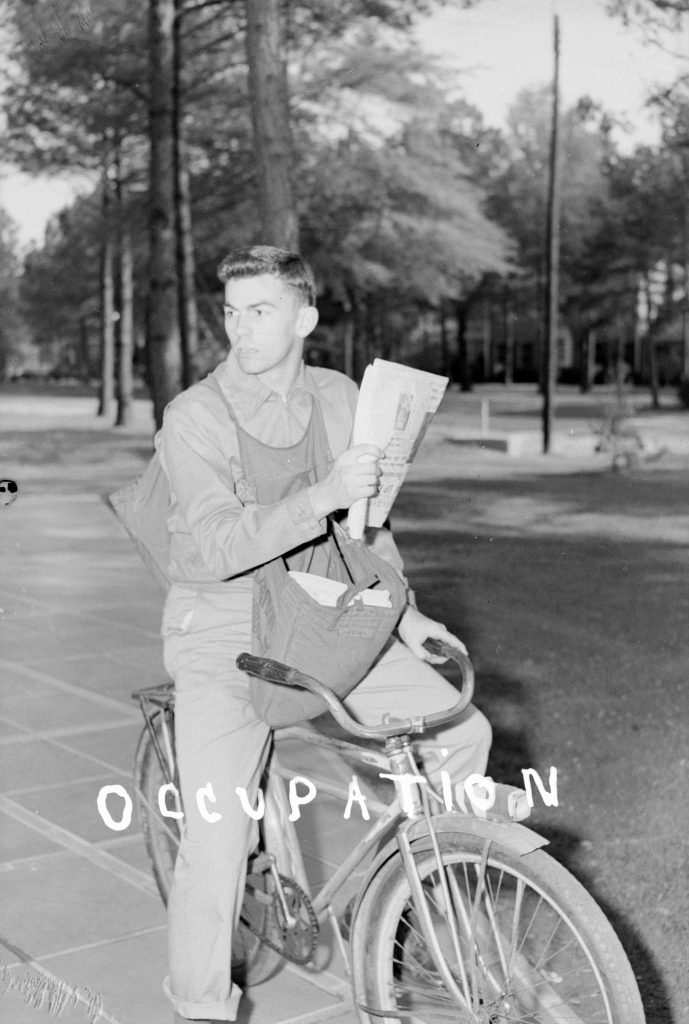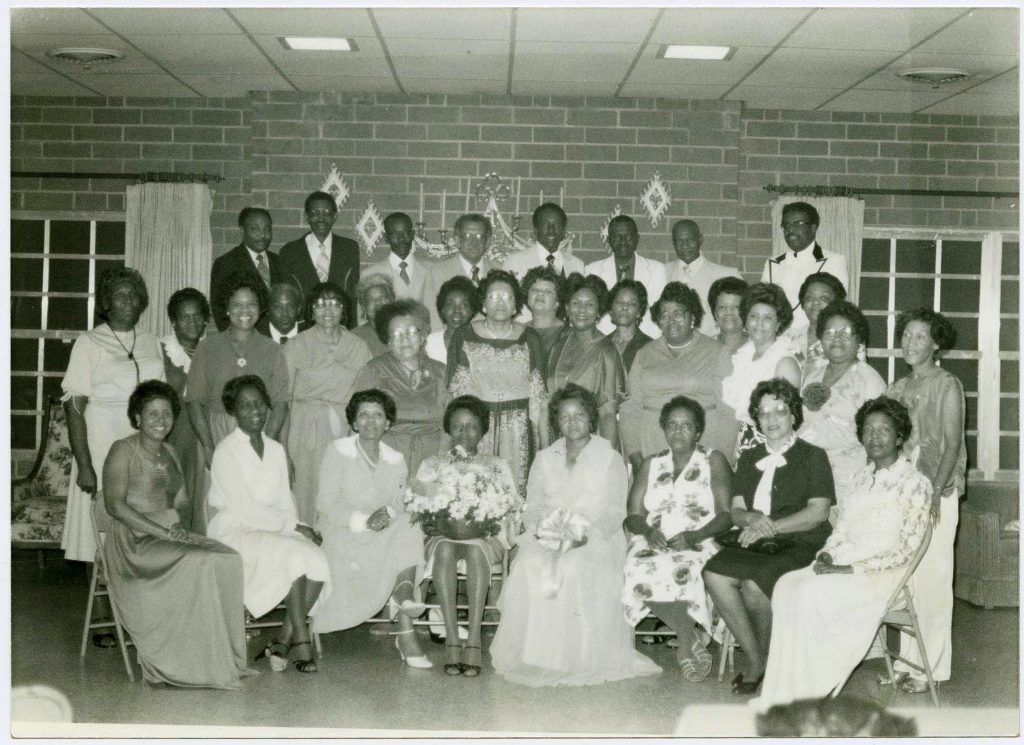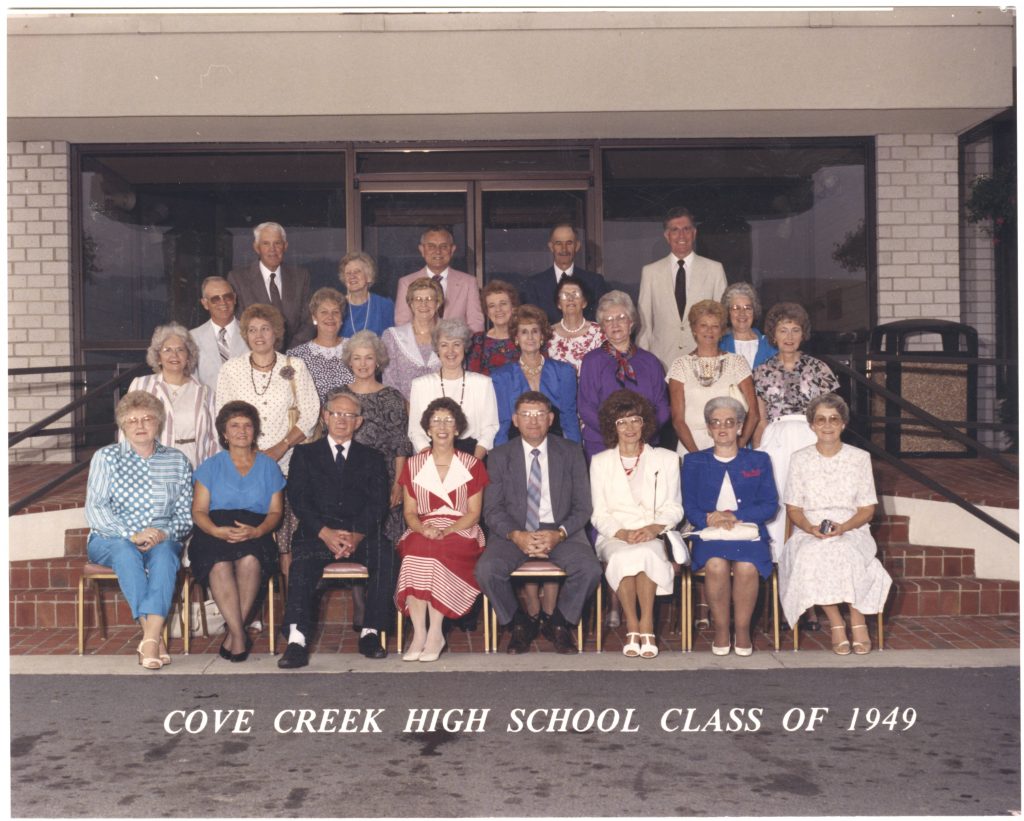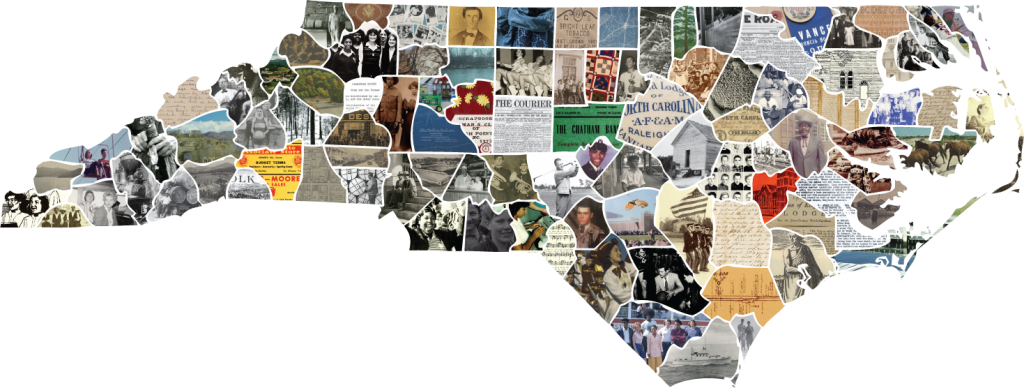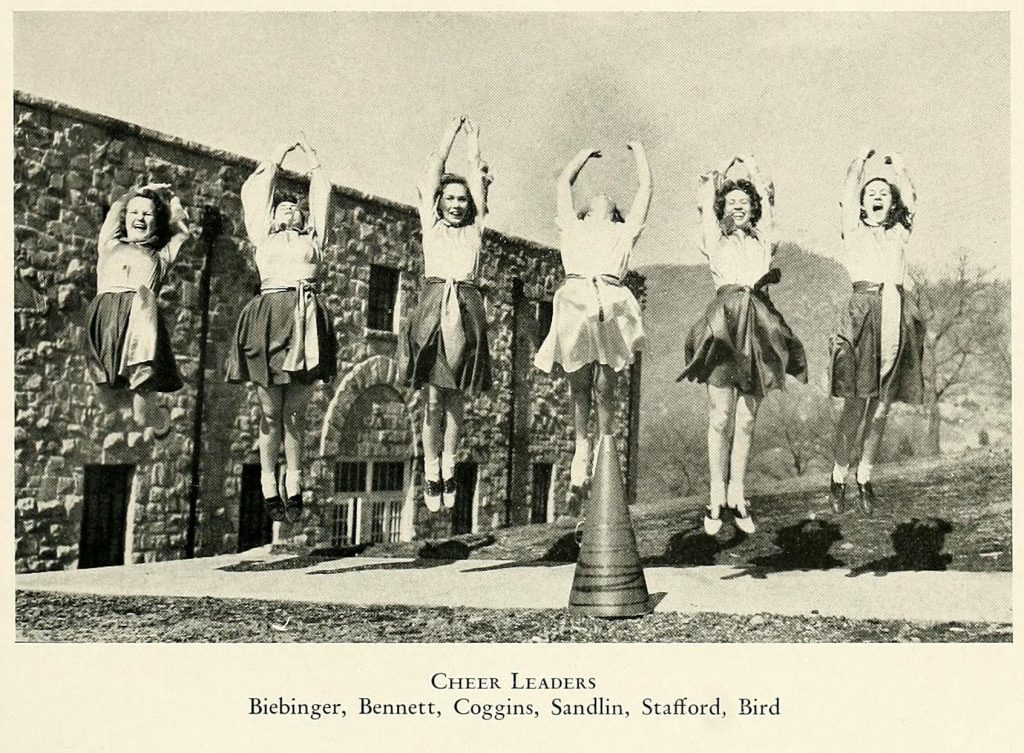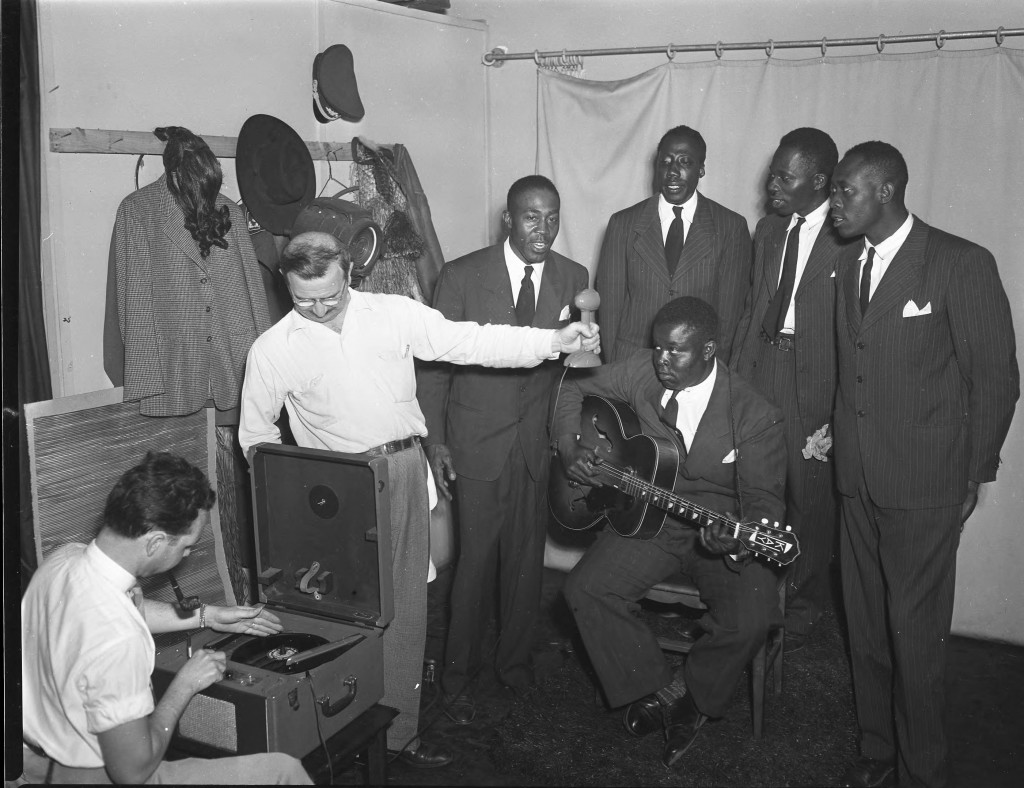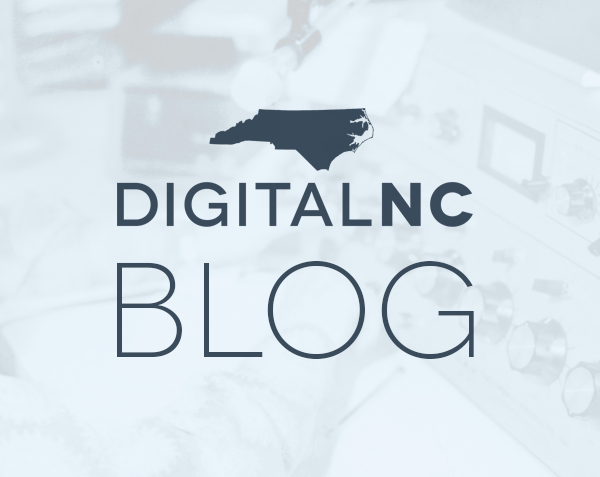Have you been interested in working with the Digital Heritage Center but find it difficult to get to Chapel Hill, or have concerns about having your materials off site? We want to come to you! We’ll be working with two or three cultural heritage institutions over the next nine months to try out on-location scanning. If you’d like to nominate your institution, read on and use the nomination form linked at the end of this post.
What We Do
Here’s what nominated institutions will receive as part of this process.
- We will bring our scanners, computers, and staff to your institution to digitize and describe materials from your collections. We would be there for one full weekday, at a minimum.
- We’ll host the scanned images and associated metadata on DigitalNC.org, and give you copies of the original scans to use in any non-profit context.
- Optionally, we can do a presentation for staff and/or the public related to any of the following topics:
- The Digital Heritage Center’s services (for staff at your institution and/or other local cultural heritage institutions)
- A demonstration of what we’re doing while we’re there (for staff at your institution)
- The variety of resources you can find on DigitalNC.org and other fantastic digital collections in North Carolina (staff or the public)
What We’ll Need from Partners We Visit
If you’re chosen, we’d need:
- At least one conference call before arrival to clarify expectations, work with you on scheduling, and talk through the materials you’d like scanned.
- Description and a light inventory of the items we’ll be scanning, if there isn’t one already available.
- Some assembly and preparation of the materials you’ve chosen. This might include physically pulling all of the content together before we arrive and removing staples if the materials are stapled at the top corners.
- A designated staff contact regularly available to ask questions regarding what we’re scanning while we’re there, and to help with logistics like getting equipment in and out of the building, etc.
- An indoor location that has:
- at least two power outlets,
- internet connectivity,
- a work area large enough for 2 scanners and 4 laptops as well as extra room for materials handling,
- seating for four people, and
- is away from the public so we can get the most scanning accomplished in our limited time (ideal but not required).
Additional Guidance for Nominations
- We’ll be giving priority to nominations from institutions furthest from Chapel Hill and to new partners. If you are a prospective partner, please check to make sure you’re eligible.
- The materials have to be owned by your institution.
- The materials should cover North Carolina subjects, events, and people.
- For these on-location sessions, we’re accepting nominations for the following types of items:
- photographs (prints) and/or postcards
- looseleaf print materials up to 11×17”
- bound items may be considered, but in very limited numbers and only if transporting them to Chapel Hill would be impossible
- Materials can be fragile but should be stable enough to withstand gentle handling and placement on a flatbed scanner.
We’ll review nominations according to the following criteria, so you may want to address these in your nomination form:
| Category |
Point Value |
| New partner |
1 |
| New town |
1 |
| New county** |
2 |
Materials document an underrepresented
community or population |
1 |
| Materials are well described/inventoried |
5 |
| Majority of materials date from 1945 or earlier |
1 |
| Materials are believed to be unique |
1 |
** We have yet to work with any institutions in the following counties: Alexander, Bertie, Bladen, Camden, Caswell, Chowan, Clay, Currituck, Dare, Gates, Graham, Greene, Henderson, Hoke, Jones, Mitchell, Northampton, Onslow, Pamlico, Swain, Tyrrell, Yancey
Use this nomination form to submit!
We’ll start reviewing nominations on September 30 and will notify selected institutions shortly thereafter. If a selected institution ends up not being able to host us, we’ll continue down the list.
We’re excited about trying out this new service. Please contact us with any questions and share this with any institutions you think might be interested.
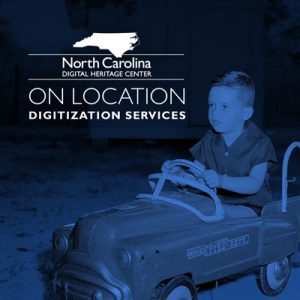
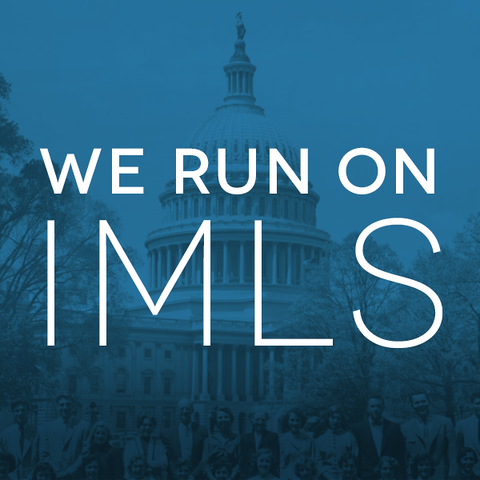 Digitization is faceless work – you rarely see the hands that carefully place fragile scrapbooks under the camera and click capture, or hear the voices debating the best description of that great photograph a partner sent us. And we don’t stick a price tag on each item, parsing out how much our funders contributed to get that item online.
Digitization is faceless work – you rarely see the hands that carefully place fragile scrapbooks under the camera and click capture, or hear the voices debating the best description of that great photograph a partner sent us. And we don’t stick a price tag on each item, parsing out how much our funders contributed to get that item online. 